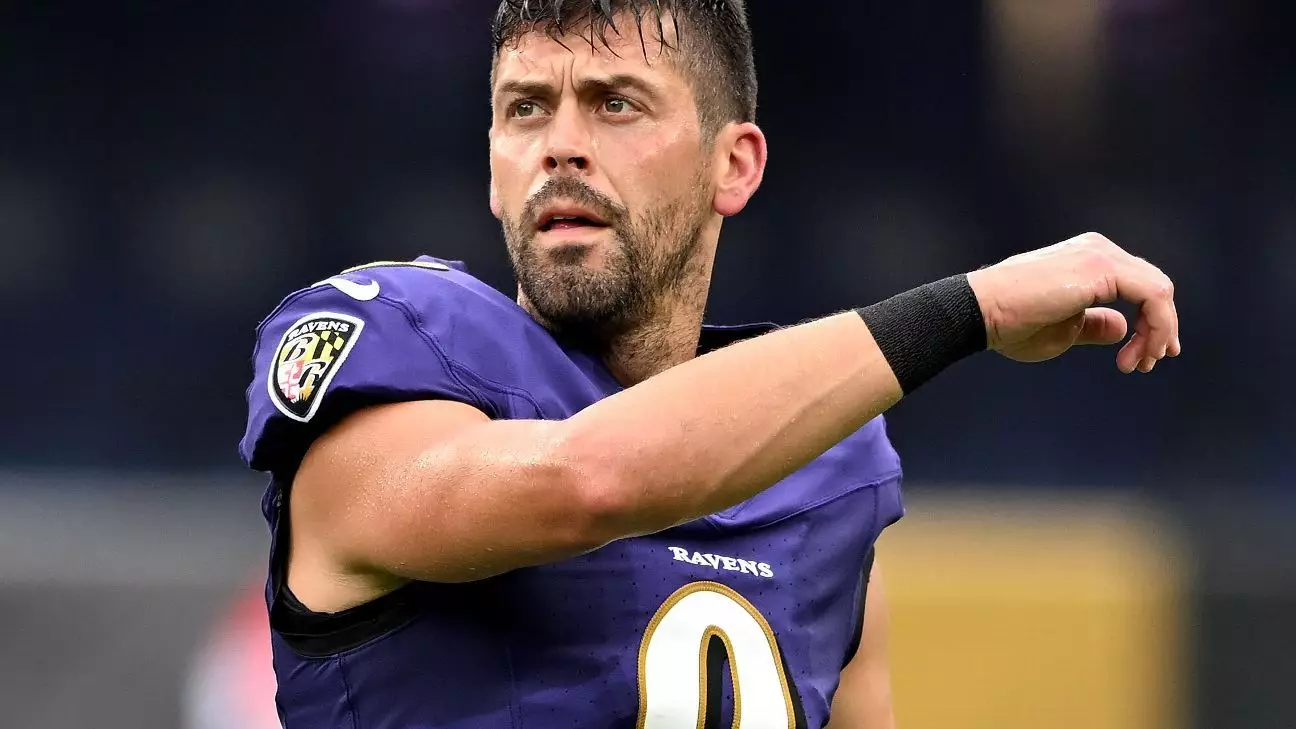Justin Tucker’s recent 10-week suspension by the NFL marks a troubling chapter in the career of one of the league’s most celebrated kickers. While Tucker built a reputation for precision and longevity in Baltimore, behind the accolades lies a darker story that demands a critical reexamination of how professional sports leagues handle allegations of personal misconduct. The NFL’s decision, though seemingly punitive, falls short of both the gravity of the accusations and the broader societal imperative for justice and cultural change.
The Weight of the Allegations and the Public Response
The suspension stems from accusations by sixteen massage therapists across eight Baltimore wellness centers, alleging sexual misconduct occurring over a five-year stretch during Tucker’s early career. These allegations are serious, especially as they highlight a pattern rather than a single, isolated incident. What is profoundly disturbing is the sheer number of accusers and the time frame involved, which indicates a systemic problem that was either overlooked or mishandled by teams and the league for years. While Tucker’s representatives maintain his innocence and decry the accusations as tabloid sensationalism, the voices of the accusers demand our attention and respect. Merely dismissing or undermining their claims perpetuates a culture that silences victims, particularly those in vulnerable positions such as massage therapists working in male-dominated sports environments.
Evaluation of the NFL’s Disciplinary Response
A 10-week suspension, especially when served only if Tucker signs with a team and begins play, feels scandalously inadequate. The NFL’s personal conduct policy is in place ostensibly to uphold ethical standards, but in this context, the punishment conveys a reluctance to genuinely confront or prioritize accountability for off-field misconduct. Given Tucker’s prominent status and the severity of the allegations, the suspension is more symbolic than transformative. It fails to adequately recognize the damage inflicted on the accusers’ lives—some of whom reported career disruption and long-lasting trauma. This weak response also sets a worrying precedent that star players might evade meaningful consequences for serious personal misconduct, undermining the NFL’s efforts to present an image of responsibility and respect.
Team Decisions Reflecting Institutional Priorities
The Ravens’ decision to release Tucker following the investigation reflects a complicated yet necessary move. Parting ways with a player who was once the highest-paid kicker in the league and a key member of a Super Bowl-winning team signals that organizations can and should prioritize ethics and community standards over athletic prowess. Yet, this move seems reactive rather than proactive, coming after years of allegations. If the Ravens had upheld stricter oversight earlier, perhaps the victims would not have endured such prolonged harm. The fact that Tucker’s performance, ironically, declined in tandem with these revelations—culminating in his worst season—adds an uncomfortable layer: one might speculate whether personal misconduct or professional focus is impacted first when a player crosses ethical boundaries.
The Broader Cultural Implications for Sports and Society
This situation underscores how the sports world remains a microcosm of wider societal struggles around sexual misconduct, power dynamics, and survivor treatment. The voices of the accusers express a profound dissatisfaction with the “bare minimum” dispensed by the NFL and Tucker’s camp. The hesitancy to embrace a full reckoning—apologies, admissions of wrongdoing, and a commitment to restorative actions—reflects a flawed approach that protects reputations over victims. Real progress demands not just suspensions, but deep institutional changes: education, victim support, and transparent investigative processes. Without these, the NFL risks maintaining a cultivated facade of morality while perpetuating harm in silence.
Responsibility Beyond the Field
Tucker’s denial and his labeling of the allegations as “desperate tabloid fodder” seem dismissive and fuel further pain for those coming forward. Accountability isn’t just about adherence to league policies—it’s a moral obligation towards colleagues, communities, and society. Public figures, especially those who have held prestigious status for years, have the power to lead with integrity or exploit their privilege. The reluctance to accept any responsibility beyond legal defense feels regressive in an era demanding higher standards of respect and ethical behavior.
Overall, the NFL’s handling of Justin Tucker’s case epitomizes a frustrating pattern: half-hearted punishments, a focus on appearances, and a lack of empathy for victims. It is a sober reminder that star athletes cannot be exempt from scrutiny and consequence if the league aims to foster a genuinely respectful and safe environment. The moment calls for bolder decisions that prioritize humanity over headlines, and justice over convenience.


Leave a Reply